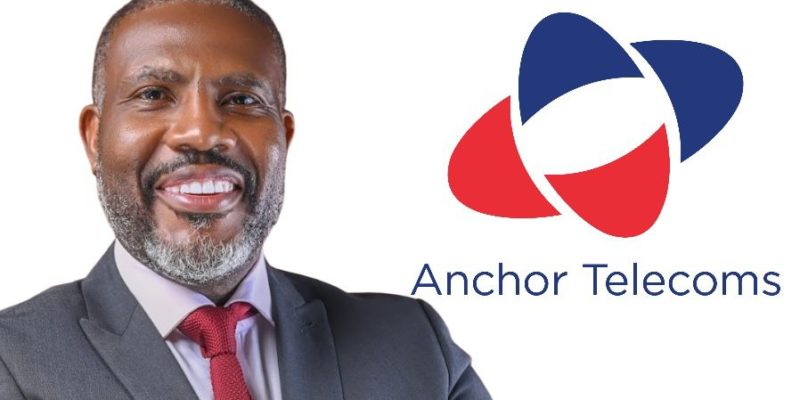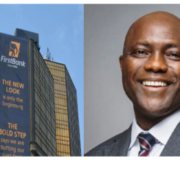Tony Izuagbe Emoekpere, the Chief Executive Officer of Anchor Telecoms and President of the Association of Telecommunications Companies of Nigeria (ATCON), shares with IT Edge News the challenges and opportunities in Nigeria’s telecoms sector. Despite its vibrancy, the sector faces significant headwinds. Emoekpere emphasizes the need for government intervention to address the infrastructure deficit and provide indigenous telecom enterprises with access to low-interest funding to foster growth and sustainability in the industry.
How does ATCON assess the current state of the telecom industry in Nigeria concerning issues like multiple taxation, exorbitant right of way charges, frequent cut of terrestrial fiber cables, undersea cable cuts and how regulation impact on the entire ecosystem?
Okay, first, there is no doubt that the industry is facing a lot of challenges and the sad thing is that most of these are issues that have been lingering for the past couple of years, especially when you mentioned multiple taxation and the likes. But I’ll first want to address the issue of the submarine Fibre cut, it was actually the first major issue. So it’s not like it’s a routine or it’s a normal occurrence. Nigeria was even fortunate to have multiple connectivity to the country so we didn’t have as much adverse effects as had happened to other countries on the continent.
RELATED: ATCON urges urgent action on undersea and terrestrial cable cuts
Now, as regards the other challenges you mentioned: fiber cuts, multiple taxation, we still see that these are challenges bordering on policy implementation. I think we’re encouraged that the current government is looking into all these issues and beginning to proffer solutions to them. We hope it will be fast enough, but as per the status of the industry, it’s been seriously challenging and has a lot of headwinds facing it.
What step can be taken by the government and other stakeholders to address the challenges being faced by the telecom industry including issues like inadequate power supply and vandalisation of infrastructure; and how can collaborative efforts help address these obstacles to promote growth?
Well, like we mentioned in our communique, it’s actually very explicit in terms of the things that can be done by the government towards ensuring that the sector is vibrant. But one of the things in addition to the tariff issue is the push to make telecoms a critical national infrastructure. We have been having this conversation for the past couple of years, even prior to my becoming president of the association. The issue is that if there’s indiscriminate damage to telecom infrastructure, there is no way we can provide the quality of experience and quality of service as being advocated and being desired by the government. If there is no consequence for damage to infrastructure, then willful vandalisation will keep happening and it will also increase the cost of doing business.
There is also the issue of irregular power and not just fiber cuts. Then, there is the challenge of where people just indiscriminately shut down telecommunication sites. We have instances where a state government can just wake up and say, they’re shutting down these sites if there are disputes over levies and fees. Disputes are understandable but going to shut down sites is like cutting your nose to spite your face. At the end of the day, your state or whatever your location will suffer as the subscribers will be affected. Once this infrastructure is deemed to be a critical national asset or infrastructure, that kind of approach to resolve dispute will not be the first approach.
Tariffs have not been increased for a couple of years now, even though a lot of cost elements have increased. But operators don’t want to increase tariff in a way that price is out of the hands of the consumer, it affects the ability to do business. But we have to make increase to a point whereby the operators can generate enough revenue to sustain the business. Right now, it’s a loss-loss situation. The advocacy for tariff increase is not to increase it arbitrarily or exorbitantly. The main issue is that these tariffs can’t remain static as it impedes the ability to drive investment in the sector which is one of the key areas that we think should be looked at. If you can’t invest in the sector due to poor tariffs, then you will not be able to increase your coverage, and increase your service quality. At the end of the day, it’s a negative outcome.
Access to low interest funding will allow small players to always deploy services at will. Funding and infrastructure are where government still needs to continue to invest in to support local players
ATCON had an event recently that focused on how fiber undersea and terrestrial fiber cuts. What was the objective for that gathering?
The breakfast meeting is a new initiative to encourage dialogues among different agencies, key decision makers on issues bothering on our industry. For the first events, we chose this subject of metro terrestrial and submarine fiber cuts, how to address them. We were able to get key stakeholders from the government side to begin to have a critical dialogue on addressing very important issues in the telecom ecosystem. We had a representatives from the NCC and other agencies. The outcome of it was a communique, which we’re sharing with all the stakeholders. We discussed and proffered solutions for the industry in terms of major issues identified during the course of the dialogue.
We identified that majorly road construction works contributes almost 80% to potential fiber cuts meaning that there is need for engagement between the construction companies and the regulator, federal and state ministries to have preemptive steps taken while these road constructions are being undertaken. Why don’t we, for example, make it a standard whereby building of ducts are actually factored into the cost of deploying these roads rather than people reinstalling them.
As the CEO of Anchor Telecoms, what are the most significant challenges you are currently facing in the telecom sector and how do these impact on Anchor’s capacity to provide quality services to its client?
I will start by introducing Anchor Telecoms. In summary, we are actually an infrastructure solution provider. Anchor provides services that are required to plan, install, construct and maintain communication infrastructure. That is our primary business. We do all the engineering work that is required to provide these services and solutions so basically, almost every player in the sector is our client. We provide services within the entire spectrum of the industry so we are at an advantage point to serve different clients including the OEMs not just in Nigeria, but also in Ghana, Cameroon, and South Africa. We have carried out projects in Benin Republic, Côte d’Ivoire, Liberia, Equatorial Guinea, and yeah, I think that’s it.
In terms of the challenges that affect us. Human capital is one of the key issues. How do we grow and retain talent. In the last couple of years, we’ve had a lot of brain drain and we lost a lot of our key personnel to the ‘Japa’ syndrome so to speak. Another key area that affects our ability to operate is that most of the costs of doing businesses are increasingly going high. Some of the things that we’re required to deploy to provide the services are actually being priced out of our hands. For example, the equipment we need to import and these are extremely expensive tools. We need to utilize them and by the time you try to amortize them over the course of the projects we execute, it becomes a difficult challenge to do.
The quality of the deployments is also a big issue. This stems from the quality of the tools and quality of the personnel. But if you don’t deploy the infrastructure in a standard manner, it will also be prone to fiber cuts. The trenches for the fiber is supposed to be dealt with at a particular depth and there are tools that are required to do that. We don’t really have them in the country. You cannot dig manually in some legislatures. You have to use the standard equipment to do those digging. We don’t have them in the country. In Ghana, you cannot manually dig, it’s almost like a rule there. You have to use equipment to do those digging if you want to dig across roads. If you want to run a cable across the road, you’re not allowed to do it manually. You must use the standard equipment. A horizontal directional drilling equipment is a standard in Ghana. Bu we don’t have those kinds of rules here perhaps because it’s difficult to enforce those kinds of rules as it’s extremely expensive to import those kind of equipment. These are the challenges we’re facing and we will continue to strive to address them.
How can governments support indigenous private telecom businesses like yours – what are the policies or initiatives to best foster growth for indigenous telecom firms?
One of the things I think will be very key is enforcing local content policies in our sector. If you look at the oil and gas sector, they have gone extremely far in ensuring that there’s indigenisation of a lot of oil services to local companies. The same approach should be done in our own sector as well. There is no reason why any in-country service should not be given to the de facto local companies. You should only outsource to foreign companies when you cannot find a local company to provide those in-country services. Policies like these will help because once you support local businesses and the volume of business increases, there’ll be incentive to invest. The reason why sometimes some local companies are a bit reluctant to invest in acquiring some of this equipment is because if you invest in a tool, for example, and then the volume of business you have is not there for you to amortize, it discourages you from procuring the tool in the first place. In-country services should strictly be local; that is local by default. Foreign players should be an option if you can’t get a local company to provide the service or you have exhausted all local companies.
Implementation of local content policy, ensuring that it works is key. I always draw again from our experience in Ghana because we also operate in Ghana. There are some government contracts in Ghana, if you don’t have a Ghanaian on your board, or you are not a Ghanaian company, you are totally excluded from those contracts. Those that want the government contracts, in the telecom space, either have Ghanaians on their board, or it’s a Ghanaian company. Any other company is excluded from those kinds of contracts. These are things that we can also do here in Nigeria to make sure that the industry is vibrant for local players.
We need to focus on our primary issues like infrastructure deficit. We don’t have enough infrastructure and unfortunately, when the sector was liberalized, we didn’t have a national operator to fall back on that was existing.
How will AI and other emerging technologies impact on operations like yours and what kind of opportunities or challenges do you foresee?
AI is a big buzzword. I wouldn’t say it’s overhyped but because we still have some fundamental challenges in the country like infrastructure needed to drive whatever services or solutions AI can provide. Without those issued addressed, we cannot realise the full potential of AI so we need to focus on our primary issues like infrastructure deficit. We don’t have enough infrastructure and unfortunately, when the sector was liberalized, we didn’t have a national operator to fall back on that was existing. In other African countries where the sector was liberalized, all their existing national telecom operators were operating, and some of them are still operating till now, for example, in South Africa, you have Telkom SA which eventually had to go into partnership with Vodacom.
But before then, once the sector was liberalized, Telkom was the one providing all the infrastructure services to the industry in South Africa because it was still there. During the liberalization of the sector in Nigeria, Nitel, unfortunately, was not in existence or could not support the growth in the sector so almost every operator had to build their own infrastructure. In Nigeria, operators in the liberalized market almost started from zero; from scratch. I think we don’t appreciate the depth of lack of infrastructure we have in Nigeria. If the Exchange Point of Nitel were still operating, for example, look at all the NITEL extreme points, if those things were still operating, those would be our data centers of today. But now everybody had to build a new data center which is not the case, with other countries AI is good and there are actually services that are utilizing AI currently and efficiently in customer service. The likes of MTN are already deploying AI for the customer service needs. AI can also be used for network optimization and planning. So when you’re analyzing your network, analyzing how your network operates, AI can also be utilized there. But in terms of other services, we need infrastructure to drive the AI services.
Are you worried that government is not supporting indigenous entrepreneurs enough so much so that market advances made by foreign companies like Elon Musk’ Starlink may wipe off local ISPs?
I didn’t mention also that at Anchor Telecoms, we actually have a subsidiary company called MangoNet, which is actually fiber to the home and wireless internet service provider. The threat of Starlink affects us directly. We also have a new venture we’re going to launch which we call Anchor Telecom Infrastructure Solutions where we’re providing smart solutions to the industry.
Now, in terms of Starlink, there are two issues here. One, technology is always continuously evolving so we cannot stem the tide of technology. How then do we approach the industry? I remember having a focused group discussion with my ISP team, and severally, they have said that actually Starlink is not a total threat to us, in the sense that the services they provide, if you look at where their footprints are, where the subscribers are really based, they’re actually more in the rural and semi-rural areas. But in terms of the core city, where our price points are, we are actually far better than Starlink. We have had situations where we have clients who had actually initially gone to Starlink and after a while came back to our service.
But the challenge that local players have is actually just funding, which is where we think that the government can come in. Don’t forget like you rightly mentioned, Starlink is more or less an OTT ISP, if you look at it in the scheme of things, and because they don’t have any major footprints here in Nigeria, they are working basically remotely. We don’t even know whether the government is even able to collect enough taxes from them. I agree that it’s something that the government needs to look at. But for local players, it is funding, I know that there is an Infrastructure Fund, if local players can access those funds, that’d be very helpful. We need single digits interest rate funds, and then if there are criteria that players need to meet, I’m sure we can all meet those criteria and then seek those funding so we can deploy effectively in areas where we can compete competitively with these providers.
Access to low interest funding will allow small players to always deploy services at will. Funding and infrastructure are where government still needs to continue to invest in to support local players. Even in the UK, the UK Government just recently rolled out fiber optic cables to support the 5G deployments there and that is supposed to be a country that’s already well advanced. Once you give the local companies access to adequate funding, based on criteria that has been set and can be met, I think we will give them a run for their money. Don’t forget, Starlink is not only Nigeria, it’s across the world and you cannot inhibit technology from coming in.
I think the only issue a lot of people have is that when you compare the criteria with which they use to enter into the country. I mean, if you have an ordinary ISP license, and you can provide that kind of blanket nationwide service, it’s a bit skewed. So I think the regulator needs to look at that, why should somebody have an ordinary ISP license and be able to provide that kind of nationwide service and then, doesn’t have local presence and things of that nature, whereas your local players who are paying your taxes, you know, having to compete with such a large entity.

































